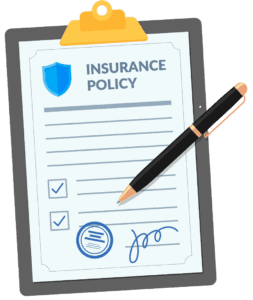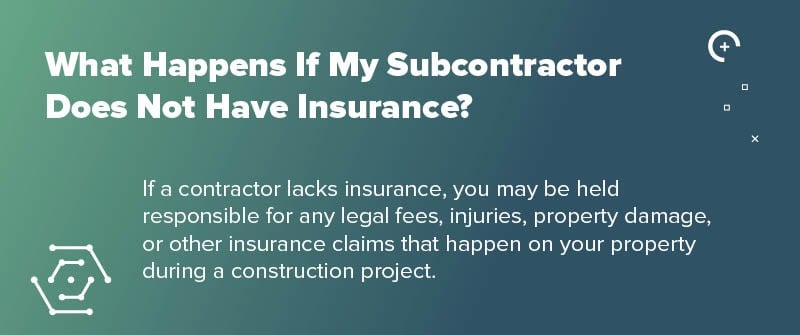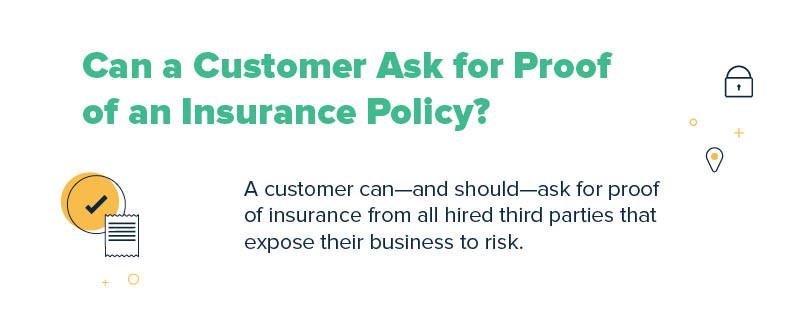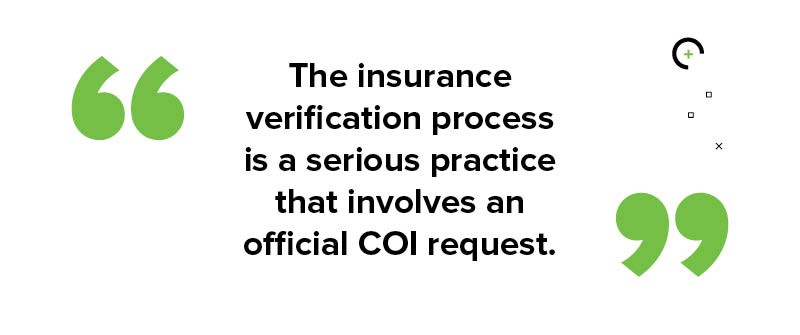
To meet contractual obligations for a new job, industry-wide standards, and/or state requirements where they reside, contractors are typically expected to carry insurance policies to cover medical expenses, etc. in case of an accident. As the business hiring them, you’re not required to make sure that they are adequately protected—but you should.
In our Certificate of Insurance 101 blog series, we’ve been exploring topics related to proof of insurance in various industries. Read on to learn about the necessity and logistics of obtaining proof of liability insurance for contractors.
Why Should I Hire a Contractor With Insurance?
When hiring contractors, it is best practice to work with those who already have insurance or are planning to attain protection for your project. Here are a few of the reasons why:
- Having insurance coverage in place protects workers from having to pay for accidents and rehabilitation costs out of pocket.
- Uninsured contractors are more likely to do substandard jobs, which may be more expensive to repair or maintain down the line.
- Contractors that carry proper insurance are considered more professional and can be easier to do business with.
- If you hire an unlicensed contractor and an accident occurs, your insurance company has the right to refuse the claim, meaning that you could have to pay for the damages out of your own pocket.
Ultimately, working with insured contractors is a risk maintenance best practice that provides you with a safety net against potential liabilities and unforeseen events. It protects your property, finances, and well-being, allowing you peace of mind throughout the construction process. Consider hiring contractors with general liability insurance, workers’ compensation insurance, or other related policies.

What Happens If My Subcontractor Does Not Have Insurance?
Unfortunately, many of us have been in a situation where a subcontractor, vendor, or other hired third-party service provider does not have proper insurance coverage. Not only does it endanger them, the contractor, but it endangers you, a business owner/their business partner, and leaves you on the hook for potential risk and financial ramifications. When it comes down to it, if a contractor lacks insurance, you may be held responsible for any legal fees, injuries, property damage, or other insurance claims that happen on your property during a construction project.
Can a Customer Ask for Proof of an Insurance Policy?
A customer can—and should—ask for proof of insurance from all hired third parties that expose their business to risk. You, as the business partner hiring a contractor or third-party service provider, are likely to be held liable for any damages your hired parties cause if you don’t ensure that they have proper protections in place.

Is It Rude To Ask a Contractor for Proof of Insurance? Can I Ask for Details from Their Insurance Agent or Insurance Company?
It is not rude at all to ask a contractor for proof of their insurance! In fact, it’s your due diligence as someone working with a third-party service provider to ensure their proper coverage. In some industries, it’s even a regulatory requirement to do so. Most general contractors will know that this is just part of the job and will anticipate your request for evidence of insurance and respond to it quickly. In some cases, you will likely have to speaker with their insurance provider to obtain a COI (certificate of insurance).
What Documents Should I Ask for When Hiring a Contractor?
When hiring a contractor, you should make sure that they have an active, relevant insurance policy that covers them up to the levels of risk you believe they are taking on in your job. The specific documents you should ask for when it pertains to proof of coverage are called business certificates of insurance, also known as simply insurance certificates or COIs. These are free documents issued by a contractor’s insurance provider that act as a snapshot of their coverage.
What Insurance Information Should You Ask For?
To ask a contractor if they’re insured, don’t rely on a verbal “Are you carrying the proper insurance for this job?” or anything of the sort. The insurance verification process is a serious practice that involves an official COI request. To make a COI request for a contractor, do the following:
- Write out in official language that you are requesting proof of [type of] insurance policy from [policyholder’s name].
- Outline any specific requirements you have, such as listing your business as an additional insured on their policy if you’d like your business to be protected by their coverage. Learn more about additional named insured vs additional insured.
- Provide them with your contact information, including your mailing address, as they will need this to list you as the certificate holder (the receiver of this proof of insurance).
Once you send off this request to them, they’ll work with their insurer to generate the document and issue it to you as soon as possible. Once you get the COI it should include their coverage type and limits, as well as the policy coverage dates. Then, the verification process begins…

How myCOI Makes Managing Contractors’ Proof of Insurance Easy
Whether this is your first or hundred and first time visiting myCOI’s website, here’s what you need to know:
- We’re a state-of-the-art COI management platform.
- We’re backed by a team of industry experts to help you with insurance questions of all kinds.
- We help you reduce the number of claims you’re dealing with on a daily and monthly basis.
- We offer multiple plans for different business needs.
- We take the hard parts of insurance verification, tracking, and ongoing compliance assurance off of your hands—simple, easy, and compliant every time.
Book a demo today if you’re interested in hearing more.